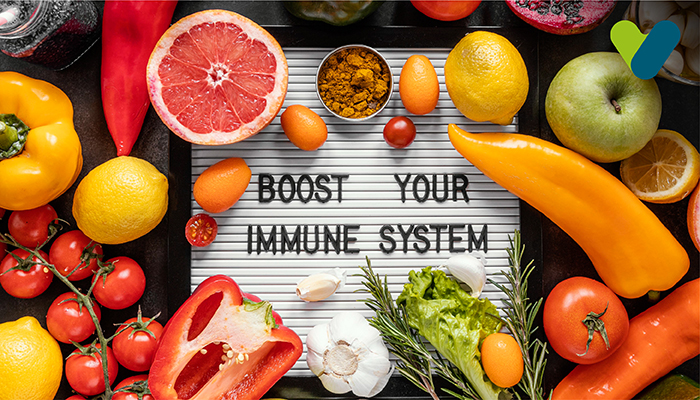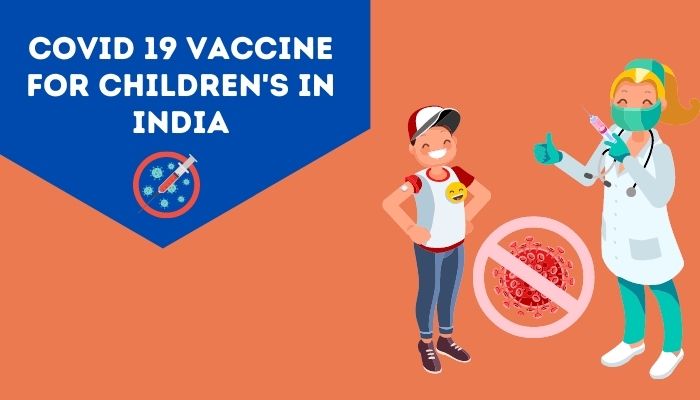Similar to how electronics function on electricity and how automobiles require good quality fuels, humans need healthy food for their proper functioning. The human body cannot produce everything it needs for the proper functioning of its organs and metabolic activities. The external supply of nutrition is required for any bodily function and, ultimately, optimal health.
The human body requires a certain minimal dosage of nutrients to carry out proper metabolism. The improper supply of the right nutrition to the human body can lead to many health complications like nutrient deficiency-induced defects, poor heart health, organ failures, metabolic abnormalities, low immunity, and several more conditions. Paying attention to providing the body with a balanced diet is a top priority, especially during COVID19, where the body requires maximum support to fight against the virus.
Balanced Diet
The nutrients that the body needs are found in trace amounts in a variety of foodstuffs. A healthy diet is constituted by combining multiple healthy foods that fill the quota of every nutrition requirement.By having too much of one food while entirely neglecting whole varieties of other foods, we are supplying a surplus of one nutrient and causing the deficiency. A healthy diet plan helps avoid that mistake by organizing platters with a little of all the primary nutrients.
Importance Of Maintaining A Healthy Diet During COVID19 –
The benefits of eating healthy foods are multi-fold. The body needs to be well-fueled for its immune system to function efficiently. COVID19 demands the proper functioning of immunity as it is the key factor ensuring the survival of individuals. The vaccine helps and so do the preliminary precautions of proper hygiene and social distancing. But the eventual health and safety of the individual come down to their body’s resistance or immunity. Of all the times that a regulated healthy diet was required, it is times like these, during the existence of an endemic virus, that we need to pay extra attention to the body’s need for a healthy diet plan. A poor diet or malnutrition is a causative factor for decreased immunity. The risks of not having a healthy diet are the most compelling reasons one should plan on getting nutritious food to avoid the below complications. Some of the major complications caused by the absence of proper nutrition are as follows:- Abnormal bodyweight – obesity or underweight
- Low immunity
- Low bone and teeth strength
- Impaired growth
- Deficiency diseases and disorders
- Fatigue and frequent illness
- Reproductive problems
- Hormonal imbalances and emotional intolerance
Nutritious Food To Stay Ahead Of COVID19
The WHO (world health organization) claims that there are two broad categories of nutrition that the body needs – micro and macronutrients. As the name suggests, the former is a list of nutrients required in smaller doses or trace amounts, and the latter is nutrients required in larger quantities. The food energy content or calories also need to be adequate to power the human body and avoid fatigue or low-energy levels. These nutrients are found in a variety of healthy foods and hence the body. According to the WHO, there are 6 basic nutrients that the body needs:- Micronutrients – vitamins, minerals
- Macronutrients – carbohydrates, proteins, fats, water
- Vitamin C is the key immunity booster vitamin and is recommended by doctors during any viral infection. It has an abundance of antioxidants.
- Spinach
- Papaya
- Strawberries
- Peppers
- Citrus fruits
- Vitamin A and Carotenoids – known for fighting against infections.
- Carrot
- broccoli
- Sweet potato
- Cheese
- Oily fish
- Vitamin E – a powerful antioxidant that aids in several biochemical reactions in the body
- Hight fat nuts – almonds, peanuts
- Sunflower seeds
- Olives
- Vitamin D – called the sunshine vitamin, helps improve immunity functions
- Oily fish like tuna, salmon
- Red meat like beef, mutton
- Egg yolks
- Cereals
- Folic acid/folate – improves immunity, brain growth, and metabolism and aids in RBC (red blood cells) regeneration.
- Beans
- Leafy vegetables
- Avocados
- Iron – improves blood health and supports immunity
- Red meat
- Dried fruits and dates
- Beans and legumes
- Shellfish
- Papaya
- Selenium and zinc – fights against infections, improve immunity, and boosts metabolic activities.
- Seafood
- Poultry meat
- Dairy products
- Omega 3 fatty acids – anti-inflammatory properties and known to boost inherent immunity
- Flaxseed
- Walnut
- Chia seeds
- Oily fish (salmon, tuna)
- Carbohydrates – providing energy for body functioning
- Grains and cereals
- Nuts and legumes
- Dairy products
- Proteins – essential for growth and metabolism, also serving as a fuel source and building block for bodily components
- Red meat
- Poultry meat
- Seafood
- eggs
- Beans, sprouts, legumes
- Nuts and grains
- Fatty acids – helps in cell growth, muscle development, blood sugar balance, nutrients absorption, immunity, hormone production, and more
- Nuts
- Vegetable oil
- Seeds
- Oily fish
- Water – helps in hydration, detoxification, and nutrient absorption
Following a healthy diet plan during COVID19 might be challenging. But it is the better option as you would be preparing your food, avoiding contact with the outer world and crowds. The frustration of staying at home and self-isolating might tempt you to look towards stress eating habits for comfort. Here are a few tips to help you maintain a balanced diet despite the obstacles:
- Mix it up – do not stick to just one dish or one format. Keep trying out new things and new ways to get the most healthy foods into your system, and eventually, you will find a pattern that works best for you. Include a variety of combinations. Keep exploring new cuisines and recipes to find variety in your healthy foods.
- Practice regularity – try to eat around the same time every day and try your best not to skip meals. Stay determined not to cave in to junk or processed food.
- Have a cheat day – grant your body the leisure of one cheat day per week where you permit yourself to gorge on any gluttonous pleasures. One day of no-rule eating with junk will not affect your health, especially when it is compensated for by the rest of the week’s healthy intake.
- Take proper rest – allowing your body to rest is just as important as eating and exercising. Your body takes a semi-break every time you sleep. Resting helps rejuvenate metabolism and other bodily functions.
- Stay active – try to practice physical exercise like jogging, cycling, swimming, yoga, sports, etc. Your body needs to jump out of slumber every day for better cardio health.
- Plan– figuring out a healthy diet plan for every meal can be exhausting and lead to you giving up. Plan the week’s meal in one day and follow the schedule.


